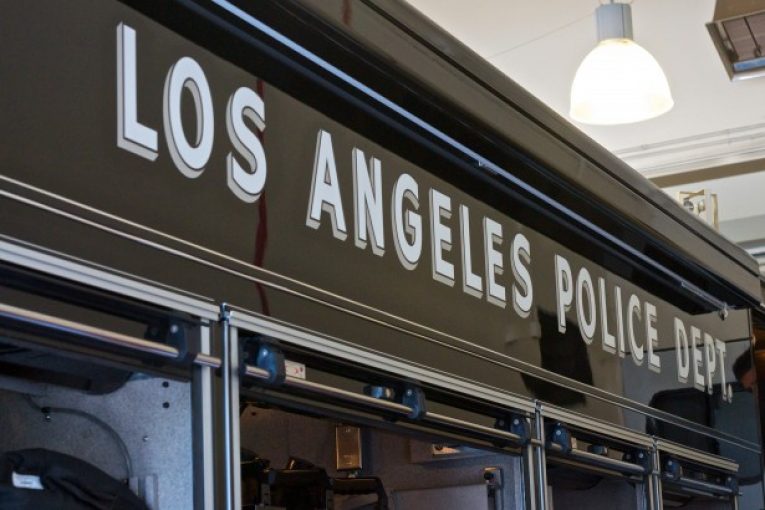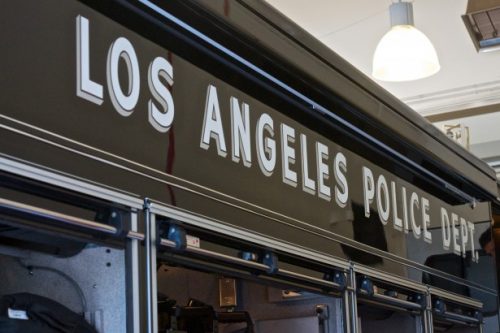

Public Domain
By The Vanguard Staff
LOS ANGLES, CA – “SnowFall” actor Damien Smith sued the Los Angeles Policy Department recently after a burglar broke into Smith’s house, but the police tased Smith at least three times after Smith called them.
Ironically, said Smith, he was making a documentary about police brutality, and he didn’t “hesitate to call the cops,” according to a Los Angeles Times story.
Smith, a filmmaker and actor, has been “critical of law enforcement but believed officers were necessary to fight crime. He hoped for better community policing. That was the subject of his documentary, ‘Searching for Officer Friendly,’ which focuses on national policing trends and the militarization of police forces,” said the LA Times story.
Smith in his lawsuit claims when police arrived at his home “late at night, officers tased him—not the burglar. They then placed him in the back of a squad car. He was released not long after, but not before being humiliated in front of his neighbors,” wrote the LA Times.
“I’m still in shock and awe of how this transpired,” Smith said. “I’m in such fear of calling the police. … Look what happened to me.”
Police did not open an investigation until Smith sued in June—more than a year after the incident, an LAPD spokesman told The Times. Officials did not comment further and declined to release body camera footage.
“About to leave town and expecting a friend who would drive him to LAX, Smith was confronted (in his apartment) by a stranger carrying a backpack and wearing his grandfather’s watch. The man, who was exiting the bedroom, claimed to be a mover, said Smith, who grabbed a camping knife and sliced the man’s hand when he charged. After the attack, the man lay on the floor and complied with orders. Smith then called police,” according to the LA Times.
Smith told the LA Times officers arrived at Smith’s apartment around 1:30 a.m. and “approached from his street-facing back door, which was ajar, according to the lawsuit. They had what looked like guns pointed at Smith, who was still holding the camping knife and standing above the burglary suspect. When officers told him to put down the knife, he did, Smith said.”
Tiffany Wysinger, who lives in the apartment above Smith’s, said she was roused from sleep by the commotion. When she realized where the noise was coming from, she ran downstairs.
“Police were there. I was screaming at the top of my lungs,” she said. “I see them with something drawn, and I scream at the top of my lungs, ‘He’s the resident!’ ”
“Smith said he was about 10 feet away from the officers, who did not immediately enter his apartment,” in the LA Times story, noting he repeatedly told police, “I live here. I called 911.”
Wysinger said she continued to scream that they were targeting the homeowner, not the burglar, who was still lying on the ground.
Smith, when hit by the taser the first time, crumpled to the floor. Police tased him twice more, according to his suit.
The LA Times wrote, “With Smith no longer standing over him, the burglar jumped up and ran to the bedroom. Only after tasing Smith did officers enter his apartment, the lawsuit claims. They handcuffed Smith, walked him out of the house in front of his neighbors and put him in the back of a police car.”
“I’m like, ‘I’m the one who called you.’ They’re like, ‘Shut up,’ speaking to me very disrespectfully,” Smith said.
“Smith sat in the patrol car for about 15 minutes while police interrogated him, he said. It was not until an emergency medical technician asked for his ID that officers conceded Smith lived in the apartment. Soon after, a captain ordered Smith to be taken out of the squad car and his handcuffs removed, he said,” the LA Times story related.
“No one apologized,” Smith said.
A man was arrested, and Smith said he not arrested or charged with any crime, according to the lawsuit that is filed against LAPD and officers involved, claiming the LAPD violated his civil rights and subjected him to false arrest and imprisonment.
Ed Obayashi, an expert who investigates use-of-force incidents for California law enforcement departments, told the LA Times that until body camera footage is released, it will be difficult to determine whether the police acted out of policy.
“If the officers can’t articulate that there was an immediate threat to their safety or others, then it’s a bad tasing — period,” Obayashi said. “But on the other hand, if the guy got belligerent or came at the officers and officers reasonably believed this guy was going to fight or had something in his hands … then it would be a justifiable use of force.”
The LA Times story adds Smith, who is Black, “sees his race as a key component in the police’s decision to tase him.”
“I believe there was a racial component to this whole situation, how the police treated me, how everything was executed,” he said to the LA Times. “I don’t think it would have went down in this manner if I was not African American.”
Milton Grimes, Smith’s attorney, said Blacks are hesitant to call the police because, as the LA Times story notes, “They fear they will end up being the victim double. They are victim when they call, and now they are victim of police.”
Grimes, who also represented Rodney King after he was brutally beaten by four LAPD officers in 1991, added, “Too many times officers come with some attitude that escalates into violence.”





Black lives truly do matter! If a rabbit hole for racism does exist, it is filled to overflowing exclusively with conservative racists.
The jury is still out…
It doesn’t sound “ironic” at all.
Based on this fact at least, it sounds more like “something else”. Perhaps something that some people don’t want to even consider, as it would conflict with their already-established views.
But hey, if you want to actually “judge” what happened via a report on a blog, have at it. Go join a protest somewhere.